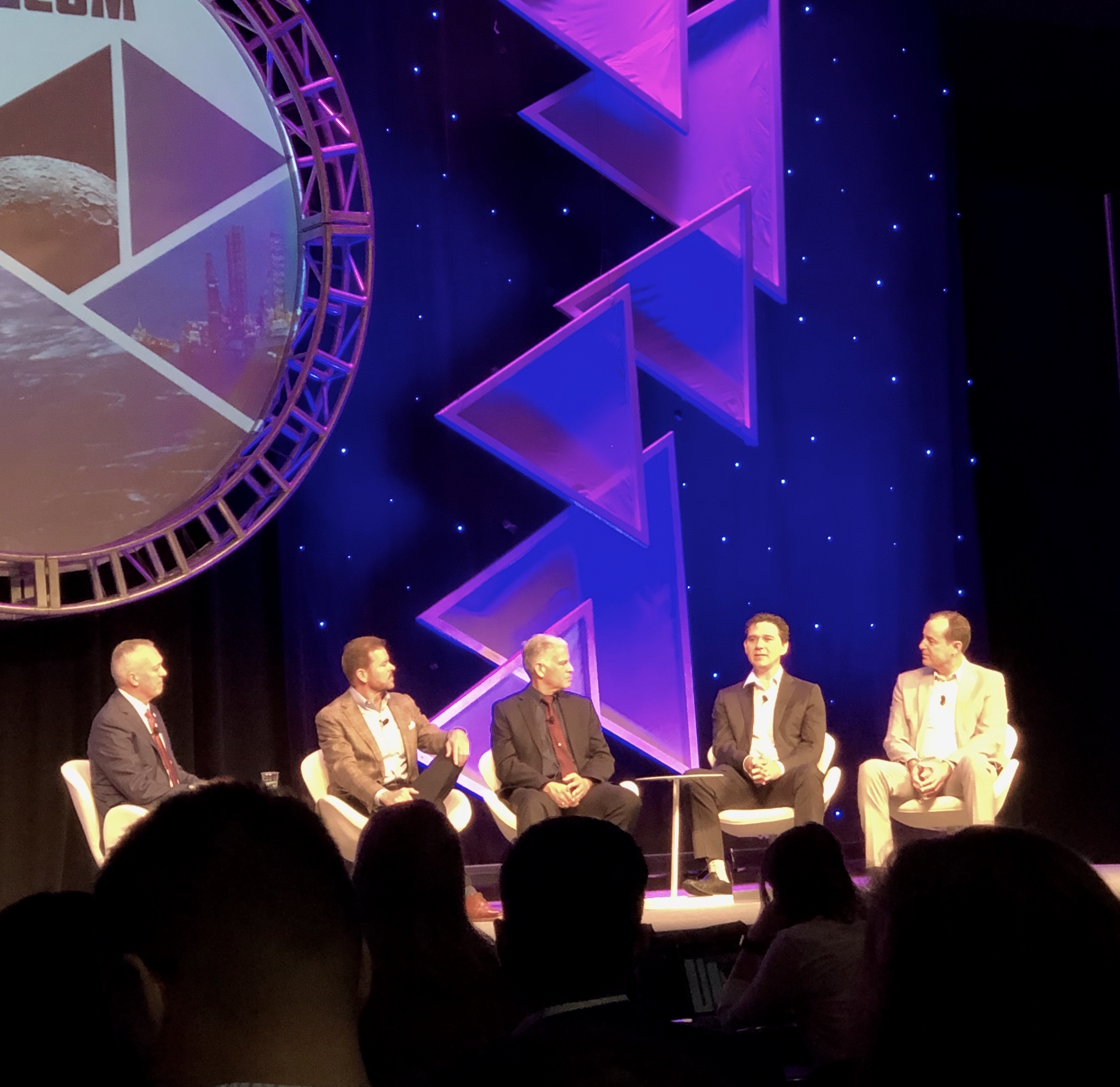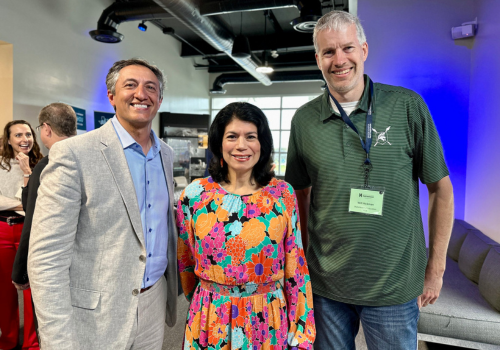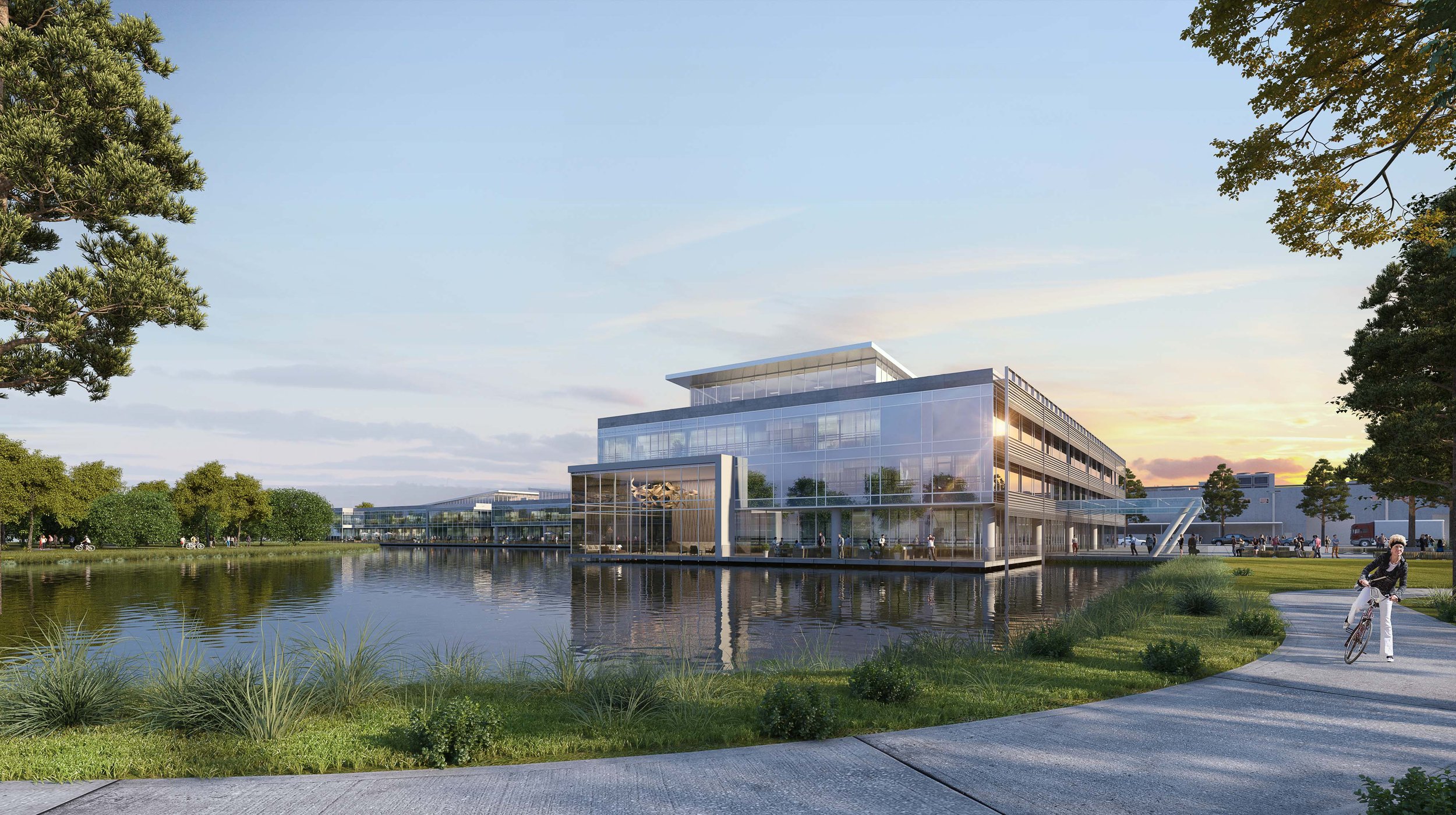Houston Set to Lead the Way in Space Economy
Published Nov 26, 2019 by Melissa Fox
As the first word spoken by Apollo 11 astronauts from the surface of the moon in the summer of 1969, Houston has long been synonymous with space exploration.
Thousands of aerospace industry experts, entrepreneurs and government leaders gathered in Houston last week to address strategic issues impacting the commercial space industry at SpaceCom, the international Commercial Space Conference and Exposition.
During the two-day conference, guest speakers and experts agreed that Houston has the opportunity to once again lead the way for the new generation of space exploration, and what experts are calling the trillion-dollar space economy.
Professionals from both NASA and the commercial space industry sat down together at one of the conference's plenary sessions to examine how the space industry has become part of the city's culture and why Houston will be the leader in the emerging commercial space industry.
Here are the key takeaways from the panel discussion:
Houston is Space City
Space exploration has always been a part of Houston's culture. "In Houston, space is in our DNA," said panelist Steve Altemus, CEO of Intuitive Machines, an aerospace technology company based in Houston.
This culture is very much alive for the next generation of Houstonians and is apparent with the start of the Houston Spaceport, a joint-use facility supporting NASA, operations of the U.S. military and a variety of commercial aviation tenets. Receiving its license in 2015, the Houston facility became the nation's 10th commercial spaceport.
The panel also agreed that Houston's large entrepreneurial and stem-focused workforce, along with its multiple distribution channels, gives this region the perfect opportunity to grow the commercial space industry. "Houston is in a great position to be this beacon and to lead entrepreneurs and inspire others to go further," said panelist Rick Jenet, Director of the University of Texas Rio Grande Valley's STARGATE program.
Houston is a City of Collaboration
The discussion surrounding Houston's culture led the panel to discuss the city's willingness to collaborate across sectors, including aerospace.
Altemus explained to the audience that NASA once only worked with commercial companies when necessary. With the growth of this emerging industry, NASA, especially at the Johnson Space Center in Houston, has taken a different approach to the procurement services and new technology with commercial companies. Johnson Space Center is working with economic development organizations to create a unified and large aerospace industry throughout the region. "There have been quite a few initiatives in recent past to tear down walls of the federal institution and spread out in the community and become a stronger, more forceful voice in space [commerce]," said Altemus.
The Houston Spaceport is also collaborating with local community college, San Jacinto College. San Jacinto launched the EDGE Center at the Houston Spaceport earlier this year. This center will allow students the opportunity to train within their chosen aerospace-focused program on location at the spaceport.
This partnership allows for Houston's workforce to gain the skill set needed to advance the aerospace industry around the Houston region. "San Jacinto College has proven themselves good at developing programs that allow people to receive a two-year degree or a certification that allows people to upskill their job skills," said panelist Harvin Moore, President of Houston Exponential." They are working with industries and companies like their partnership with the spaceport to make sure the workforce has the skills that the industry needs."
Learn more about innovation in Houston here. Learn more about the Houston Spaceport here.
 The Houston Report
The Houston Report





















